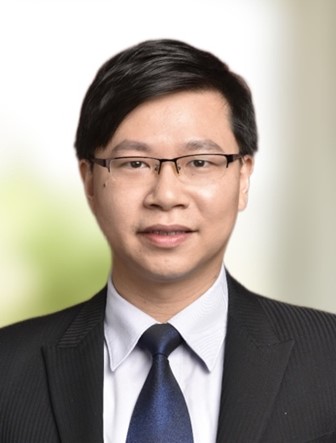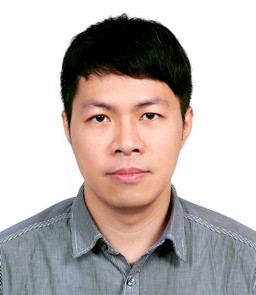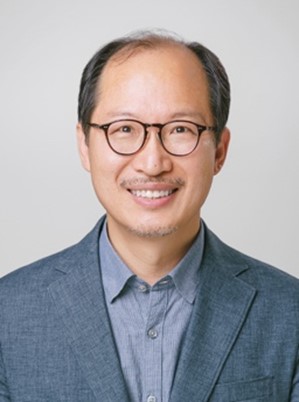Plenary Talk 1
Securing the Future: Ensuring AI Security
 Patrick Chan
Patrick Chan
Associate Professor, South China University of Technology, China
Deputy Dean, Shien-Ming Wu School of Intelligent Engineering, South China University of Technology, China
Associate Editor, International Journal of Machine Learning and Cybernetics
Associate Editor, IEEE Trans. on Cybernetics,
Associate Editor, Information Sciences
Associate Editor, Advances in Computational Intelligence
Abstract:
Machine learning techniques have found extensive applications in various domains although their security concerns have not been thoroughly explored and investigated. Many studies have shown that machine learning models can be easily misled by carefully crafted samples. This security issue becomes even more critical in the realm of deep learning, as publicly available datasets and pre-trained models are increasingly employed. Unfortunately, these datasets and models can be compromised by malicious third-party suppliers. This seminar aims to delve into the vulnerabilities of machine learning methods against adversarial attacks and explore strategies for enhancing their robustness.
Biography:
Dr. Patrick Chan is currently a Deputy Dean and Associate Professor of Shien-Ming Wu School of Intelligent Engineering in South China University of Technology, China. After he received the Ph.D. degree from the Hong Kong Polytechnic University in 2009, he served as Lecturer and then promoted as Associate Professor in School of Computer Science and Engineering in South China University of Technology. His current research interests include Deep Learning, Computer Vision, Adversarial Learning, and Security of Machine Learning. Dr. Chan has involved in many projects of National Natural Science Foundation of China, Natural Science Foundation of Guangdong Province, and the Fundamental Research Funds for the Central Universities, and has many industrial collaborations and has obtained industrial projects. He serves as Assistant of Editor-in-Chief and Associate Editor of International Journal of Machine Learning and Cybernetics, and Associate Editors of IEEE Trans. on Cybernetics, Information Sciences and Advances in Computational Intelligence. Dr. Chan has actively involved in international activities. He was the Board of Director member of IEEE Systems, Man, and Cybernetics Society (SMCS) and the Chair of IEEE SMCS Hong Kong Chapter. He also serves as Organizing Committee Chairs of several international conferences.
Plenary Talk 2
New Research Directions in Evolutionary Multi-Objective Optimization
 Hisao Ishibuchi
Hisao Ishibuchi
Chair Professor at Southern University of Science and Technology, China
Fellow, IEEE
IEEE CIS Administrative Committee Member
Associate Editor, IEEE Transactions on Evolutionary Computation
Associate Editor, IEEE Transactions on Cybernetics
Associate Editor, Evolutionary Computation Journal
Associate Editor, ACM Computing Surveys
Abstract:
In the field of evolutionary multi-objective optimization (EMO), various EMO algorithms have been proposed in the last three decades under the following widely-accepted implicit assumption: The final population is presented to the decision maker. Thus, the goal of EMO algorithm design is to find a good final population. The performance of EMO algorithms is evaluated using the final population. Recently, two different directions have been actively studied. One is the use of an unbounded external archive, and the other is the Pareto front (or Pareto set) modelling. In the first direction, all the examined solutions are stored in the archive. Then, an arbitrary number of solutions can be selected from the archive for the decision maker. In the second direction, the Pareto front (or Pareto set) is modelled by supervised learning based on examined non-dominated solutions or reinforcement learning based on a performance indicator. Then, an arbitrary number of final solutions can be obtained from the model for the decision maker. These two approaches are much more flexible than the traditional EMO algorithm framework since an arbitrary number of solutions can be presented to the decision maker, which may increase the practical usefulness of EMO-based decision making. In this talk, first I will explain the traditional EMO framework and the two new directions (the use of an unbounded external archive, and the modelling of the Pareto front/set). Then, I will discuss some interesting research challenges related to the two new directions such as subset selection from large candidate sets, use of examined solutions for generating new solutions, and the inverse mapping from the m-dimensional objective space to the n-dimensional decision space where n >> m.
Biography:
Hisao Ishibuchi is a Chair Professor at Southern University of Science and Technology (SUSTech), China. He was the IEEE Computational Intelligence Society (CIS) Vice-President for Technical Activities in 2010-2013 and the Editor-in-Chief of IEEE Computational Intelligence Magazine in 2014-2019. Currently he is an IEEE CIS Administrative Committee Member, and an Associate Editor of several journals such as IEEE Transactions on Evolutionary Computation, IEEE Transactions on Cybernetics, Evolutionary Computation Journal, and ACM Computing Surveys. He is also General Chair of IEEE WCCI 2024. He received a Fuzzy Systems Pioneer Award from IEEE CIS in 2019, an Outstanding Paper Award from IEEE Transactions on Evolutionary Computation in 2020, an Enrique Ruspini Award for Meritorious Service from IEEE CIS in 2023, and Best Paper Awards from FUZZ-IEEE 2009, 2011, EMO 2019, and GECCO 2004, 2017, 2018, 2020, 2021, 2024. He also received a JSPS prize in 2007.
Plenary Talk 3
Reproducibility Crisis of Artificial Intelligence in Practical Applications
 Chao-Cheng Wu
Chao-Cheng Wu
Associate Professor, National Taipei University of Technology, Taiwan
Abstract:
The field of artificial intelligence has experienced remarkable growth in recent years. Technologies such as chatbots, generative AI, and image generators have been widely adopted across various industries, driving transformative advancements. However, the success rate of many practical applications of artificial intelligence (AI) and machine learning (ML) often falls short of expectations, with numerous AI or ML projects failing to progress to actual production.
Reproducibility is one of the major challenges encountered in practical applications of AI and ML. It refers to the ability to replicate an experiment and obtain the same results using the same methodology, a standard considered essential across all scientific disciplines. In the context of business applications, reproducibility helps establish systems that are less prone to errors and generally more reliable and predictable. This reliability is crucial for persuading decision-makers to scale AI systems and extend their benefits to a broader range of users. Unfortunately, as many AI practitioners are aware, issues with reproducibility are prevalent in many AI projects.
This presentation aims to share experiences from the implementation of AI in several practical applications, including medical, biological, and agricultural fields. In practical applications, data collection is the most critical step in implementing AI. Given that data collection is often labor-intensive and costly, datasets are generally small. Consequently, data leakage is a common issue that can adversely affect the reproducibility of AI. For instance, if plant disease data from the same field are divided between training and test sets, the AI model may learn to identify features associated with that specific field rather than the general patterns related to the disease. Moreover, the environment in which the data is collected also plays a significant role. In the aforementioned example, data collected from a single field may not accurately reflect real-world scenarios. In such cases, a method that produces reliable and valid results in a controlled environment may not be reproducible in more diverse, real-world settings. This issue is prevalent in many practical applications of AI, which is the focus of this presentation.
Biography:
Chao-Cheng Wu received the B.S. degree in electrical engineering from the Tamkang University, Taipei, Taiwan in 2002, the M.S and Ph.D. in electrical engineering from the University of Maryland, Baltimore County (UMBC), Baltimore, MD in 2006 and 2009 respectively. Dr. Wu is currently an associate professor in Department of Electrical engineering, Taipei Tech. His research interests include multispectral/hyperspectral image and signal processing, detection and estimation, pattern recognition, machine learning algorithms in agriculture and medical field. He is the reviewer for several international journals. Dr. Wu is a senior member of the honor society of IEEE.
Plenary Talk 4
Code Intelligence and Language Models
 Jee-Hyong Lee
Jee-Hyong Lee
Professor, Sungkyunkwan University, Korea
Director, Convergence Research Institute, Sungkyunkwan University, Korea
Director, Sungkyunkwan University Graduate School Program of Artificial Intelligence
Co-Editor-in-Chief, International Journal of Fuzzy Logic and Intelligent Systems
Abstract:
Recently, there has been significant research on code intelligence using deep learning language models. In this talk, I will discuss how these techniques are integrated with programming languages to enhance code understanding and generation. I will start by introducing various tasks in code intelligence and then explore pretrained language models, such as CodeBERT and CodeT5, specifically designed to bridge the gap between programming and natural languages. Additionally, I will address the current challenges in this field. Key issues include managing the semantic discrepancies between different languages, ensuring the robustness of these models, and critically evaluating the functionality of the code they generate.
Biography:
Professor Jee-Hyong Lee has been a faculty member in the Department of Software at Sungkyunkwan University since March 2002. Since January 2022, he has served as the Director of the Convergence Research Institute at Sungkyunkwan University. Additionally, he has been the Director of the Sungkyunkwan University Graduate School Program of Artificial Intelligence, funded by the Korean government, since April 2019. From September 2019 to August 2022, he chaired the Department of Artificial Intelligence at Sungkyunkwan University. Beyond academia, he contributed as the Vice President of the Artificial Intelligence Society at the Korean Institute of Information Scientists and Engineers from January 2017 to December 2019. Presently, he holds the position of Co-Editor-in-Chief at the International Journal of Fuzzy Logic and Intelligent Systems since January 2023.
